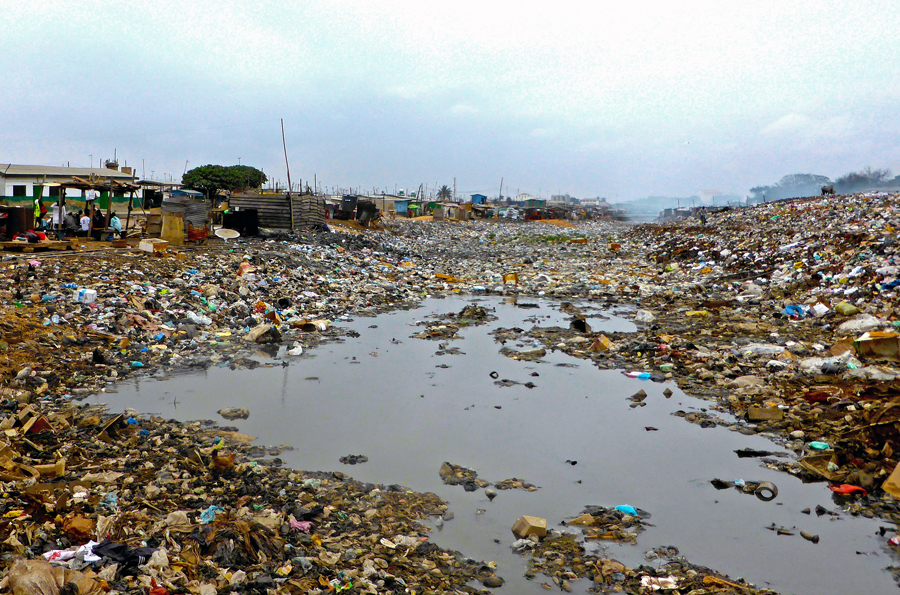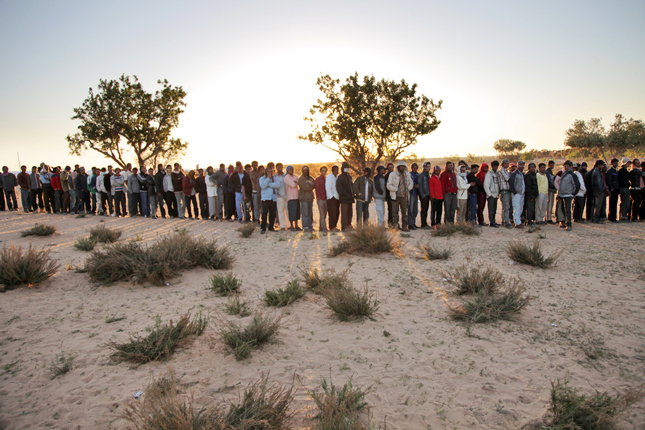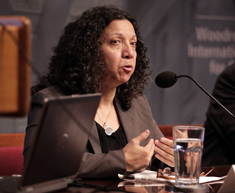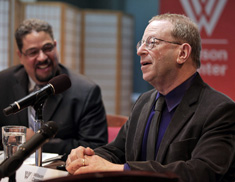-
Climate Change and Conflict in West African Cities: Early Warning Signs in Lagos and Accra
›Despite the threat posed by flooding and sea-level rise, relatively little attention has been paid to the potential for environmentally induced instability in coastal West African cities. However, current trends, including rapid population growth, land use patterns, and increasing climate impacts, suggest the costs of inaction in these urban areas are rising.
-
Why Do People Move? Research on Environmental Migration Coming of Age
›
When she finished her dissertation on migration as a response to climate change in 2003, it was one of only a handful of scholarly papers published on the topic that year, said Susana Adamo, an associate research scientist at Columbia University’s Center for International Earth Science Information Network. But in the decade since, interest in climate migration has exploded – in 2012, more than 10 times as many papers were published. [Video Below]
-
National Security and the Accelerating Risks of Climate Change (Report Launch)
›
Climate change poses a serious threat to U.S. national security and is becoming a “catalyst for conflict” in vulnerable countries, according to a panel of retired military leaders speaking at the Wilson Center on May 15. [Video Below]
-
Susana Adamo: Migration Is Changing the Geography of Climate Change Vulnerability
›
While it may seem obvious, it bears repeating that certain parts of the world are more susceptible than others to the adverse impacts of climate change. And since humans are distributed unevenly across the earth’s surface, certain people are more susceptible than others as well.
-
What Can Governments Do About Falling Birth Rates?
›
“We have a fairly unique moment in the history of the world,” said Steven Philip Kramer, a professor at National Defense University, at the Wilson Center on April 17. “There’s never been a time when people have voluntarily produced fewer children than is necessary for sustaining the population.” [Video Below]
-
Steven Philip Kramer on ‘The Other Population Crisis’
›
Ever since Thomas Malthus’ 18th-century treatise linked overpopulation with conflict and poverty, population growth has been a subject of concern and controversy. But does population decline warrant similar attention? According to Steven Philip Kramer, the subject of this week’s podcast and author of The Other Population Crisis: What Governments Can Do About Falling Birth Rates, it does.
-
A New Dimension to Geopolitics: Geoff Dabelko on the Latest IPCC Report
›“The Intergovernmental Panel on Climate Change is an attempt to get an international group of scientists together to assess what we know about climate change,” says Geoff Dabelko in an interview with the Wilson Center’s Context program. “That is not a quick process.”
-
Vulnerability to Climate Change Institutional as Well as Environmental, Says Janani Vivekananda
›Vulnerability to climate change is in part determined by exposure to specific changes – proximity to low lying coastal areas or areas of likely drought – but state capacity also plays a major role. And interventions targeting either must reflect the complex links that bind the two, says International Alert’s Janani Vivekananda in an interview with adelphi’s Environment, Conflict, and Cooperation platform.
Showing posts from category migration.










